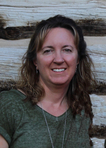Interview with Taylor Simonds
Taylor Simonds has just released her new book, Collateral Damage, and it is already a best seller. Fans of superheroes will love this unique take on the classic stories and my interview with Taylor definitely shows her fun personality. The book is published through Parliament House Press.
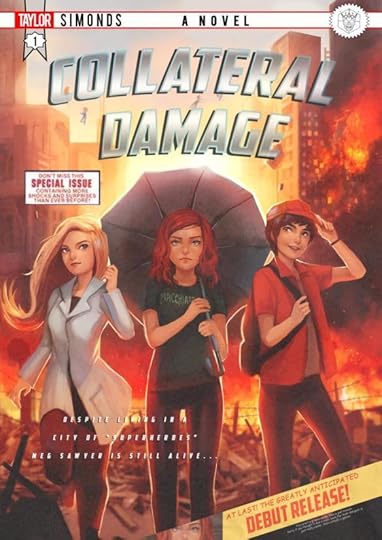
Synopsis:
Power. Courage. Invincibility. The marks of a true hero.
Meg Sawyer has none of these things.
Meg has never stopped a moving bus with her bare hands, been bitten by a radioactive insect, or done anything moderately resembling saving the world. She doesn’t have to. She’s a background citizen, a nobody, one of the swarms of faceless civilians of Lunar City–where genetically enhanced superhumans straight out of the comics have thwarted evil for years.
For as long as the Supers have existed, Meg has had one goal: to not become a casualty in their near-daily battles for justice. And for the last seventeen years, she’s managed to do just that. Sure, her minimum-wage job at the local coffee shop isn’t great, she can’t even leave her apartment without loading herself up with protective gear, and her car was just hijacked to throw at a supervillain (again), but she’s not dead yet.
But when Meg accidentally finds one of the city’s perfect, invincible protectors murdered under extremely suspicious circumstances, her whole “innocent bystander” strategy falls apart. After being coerced by his determined girlfriend into a mission to help prevent the deaths of the remaining Supers, Meg finds herself forced into the foreground of a story she never wanted to be part of-one that challenges everything she thought she knew about both her city and herself.
What inspired you to write Collateral Damage? What is special about it?
My recent debut COLLATERAL DAMAGE is about the aggravated, cynical background extras who have to deal with the chaos brought about by superheroes, and was unapologetically inspired by a showing of Man of Steel I saw when I was seventeen, in which Superman and Zod destroy an entire damn city while fighting each other. I couldn’t concentrate on the movie at all—all I could think about was “oh my god, so many people are dead. Oh my god, they’re breaking everything. How much property damage just happened? Then I was like, “Someone should write this book. I’ll write this book.” It took six years, but we got there.
That’s so funny. Sometimes it’s interesting to look at something from someone else’s point of view. Which character in your books are you most like? Unlike?
It’s not out yet because I’m still dragging myself through this draft, but I feel like there’s a lot of me in Aren, one of my protagonists from my space fantasy! He uses humor and optimism to deflect from his inner fears and desperation for approval, and that’s something I really relate to. I feel like a lot of people will think I’m like Meg from Collateral Damage, because it’s a first-person narrative, so her written voice is inevitably so, so close to my written internet persona, but we actually don’t have much in common. She’s rather pessimistic and guarded, which is to be expected when you spend your whole life waiting to get crushed under a falling building, and it takes a lot for her to open up or make a friend. Aren is part of a crew of very skilled, pretty badass mercenaries, and he knows he doesn’t belong with them but really, really wants to. He cares so much about what other people think of him, and tries to make up for his perceived incompetence by working really earnestly and helping wherever he can, and so do I.
How long have you been writing? Did you always know you wanted to be a writer?
Okay, I know everyone always says “I’ve been writing my whole life and I always knew I wanted to be a writer” and I wish I could say that applied to me, too, but I actually wanted to be a performer for a while. I was really involved in theater in high school and got a job as an Equity singer at Disney World pretty much out of the gate when I graduated. My Big Dream was to work on the Disney Cruise. I wrote in a way where I didn’t realize I was writing; when I was in high school I’d take whatever bland assignment I had and come at it from a weird angle—like when I was in dance classes we’d have to write a weekly article about news in the performing arts community, and I’d always turn in these very quippy, dry, sarcastic observations that I didn’t even realize were developing my narrative voice. Or we’d have to write an essay about Greek mythology, and instead I’d write a one-act play that was a comedic retelling where everyone spoke colloquially. Stuff like that. So that helped me find my voice, but the performing arts stuff turned writing into a game, like I was creating a play where I was performing as every character at once. Then, when I needed some internships for college, I worked as a staff writer for College Fashion, then MuggleNet, and started to realize that this was what I was good at, this was what was fun for me and what I actually wanted to do.
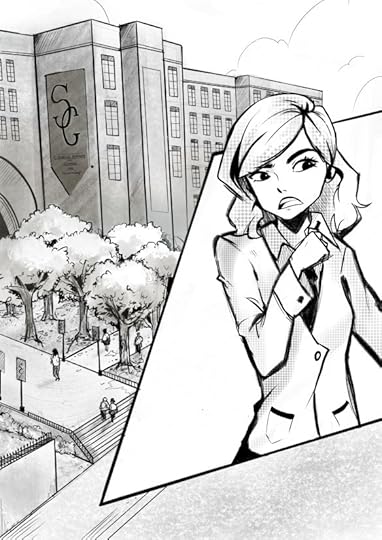 Artwork from Collateral Damage
Artwork from Collateral DamageYou have a lot of experience in the field. Tell us about your writing process. What is the journey from draft to published piece?
I don’t know if two books is enough to supply a
scientifically justifiable pattern, but pretending it is, here’s the process:
1) A book
premise and ending drop themselves into my head fully formed. I know who my
characters are and where they’re going and I have no idea how they’re going to
get there.
2) I
pants. I write without an outline. It is bad. “The first draft is telling the
story to yourself!” I scream at myself as I write many, many bad words that I
know I will delete later.
3)
Somewhere around the 40,000-word mark, I realize that I have made a crucial
error in developing one of my lead characters. That personality isn’t right at
all. I have to fix it. Wait, I need to change the opening scene to match the
characterization I actually want them to have. Wait, none of these characters
are right. This worldbuilding is so half-baked. This would make a much better
inciting incident. What am I doing?
4) I move
all 40,000 words to a file labeled “WIP Dumping Grounds” and start over from
scratch.
5) I do this three more times until I have 40,000 words I don’t hate and then I finish the book, still screaming.
That is quite the process! I’m a pantser, too, but I usually write one rough draft and sometimes stop to ask myself where I am headed. Tell us more about letting your characters drive your stories.
HAHAHAHAHAHA! OH GOD MY CHARACTERS DRIVE EVERYTHING AND THEY’RE SO BAD AT DRIVING. It’s like being in a car with no brakes, speeding toward the edge of a cliff. Sometimes they’ll turn around completely and start driving in the other direction, or I’ll have them aiming for a specific road and then they’ll swerve to detour onto a bridge I didn’t even know was there. It’s the worst. But I also feel like it allows them to react naturally, in the moment, like real people. Real people don’t have their lives plotted—they know where they want to go, and how they think they’re going to get there, but your path is informed by your decisions. If I know who every one of my characters are on every level, they will act realistically, and their choices will create the plot.
I LOVE what you just said. I might use that with my husband who wants me to plot everything. Where do you write?
I’m lucky enough to live near Disney World, so one of my favorite things to do is take my laptop to one of the resorts and work there. They’re all so beautifully themed and it’s so easy to find a quiet place with a comfortable chair. I get a coffee from the gift shop and turn on my music and write until the guests start swarming back in from the parks. The best locations are Beach Club, which has a promenade-style reading room that makes me feel like I’m on a cruise ship, Wilderness Lodge, which has big crackling fireplaces and fulfills all of my wish-I-was-on-a-writing-retreat-in-the-woods dreams, and the Grand Floridian, which is just fancy.
That sounds amazing! I’m a huge Disney freak. Parliament House retreat? Do you have a writing goal you want to achieve? What does success look like for you?
Yeah, I’d like to defeat my own imposter syndrome and be able to believe people if they say they like my book without immediately suspecting them of lying to me. Oh god, that’s too dark uh—you know what would be cool? If someone cosplayed one of my characters. Or if I went to a con and came across fan art. I would die.
With a superhero story, that might be a possibility. What helps you most when it comes to writing?
PLAY. LISTS. Spotify has singlehandedly sponsored every aspect of my writing. I don’t plot very far in advance, but I do brainstorm very cinematically—I’ll storyboard a scene in my head and watch it over and over again before I write a word, and music is an irreplaceably important part of that. I have a score for like every scene I’ve written—you wouldn’t believe how much it helps with the pacing. I’ll pick an instrumental track and then talk out my dialogue over it, using the fluidity of the music to inform how fast characters should talk or react, when natural pauses would occur for introspection on the part of the narrator, how long a conversation should go on before it gets interrupted. Then there’s character themes, emotional playlists, songs I can imagine my characters singing in the shower or on a road trip to help me develop their personalities, Broadway musical numbers that match a particular dynamic. It’s the only thing that consistently works to help me write.
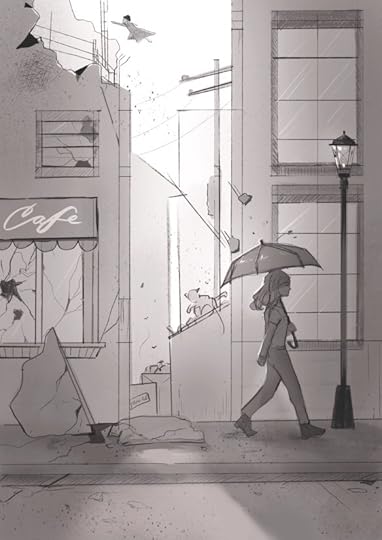 Artwork from Collateral Damage
Artwork from Collateral DamageWho, or what inspired you to be a writer?
I mentioned before that it didn’t hit me that I wanted to be a writer until a little later in life, but once the revelation came, I knew exactly who was important to me and who I wanted to emulate: Meg Cabot. From middle school onward, I’d read The Princess Diaries pretty much once a year, and I used to get in trouble in class for laughing too loud. It was the first book I read that helped me understand the power of voice, and how important humor was to tell a compelling story—and I realized that I’d been unconsciously letting that self-deprecating, sarcastic voice seep into my own school writing for years without noticing it. So when I finally sat down to write my first book, I knew I wanted to be like her.
Besides the Princess Diaries, are there any other books that have had an impact on you? Why?
Listen—LISTEN, I know how trite it is to say Harry Potter, but I’m saying Harry Potter anyway and here’s why: .when I was little, I read exclusively classics. I probably actually didn’t, I probably read Dr. Seuss or something at some point, but I don’t remember it. I remember being in first grade and reading A Little Princess and Little Women and Anne of Green Gables. I think these books created me and reflected me as I was, because I was a little girl with a lot of imagination and love for others who often felt different because I read too much or felt too intensely, and those were books about girls who were exactly the same. I was very quiet when I was little and didn’t have very many friends, and it was okay because so did the protagonists of the classic books I was reading, so I could relate to them. I had all these books teaching me that reading was an introverted activity, and that it was okay and good to feel different from everyone else.
Harry Potter changed that, because Harry Potter was a community activity. I didn’t know reading could be social before. Suddenly, I could dress up as Hermione for Halloween, go to launch parties at Borders and movie premieres at the mall, buy Bertie Bott’s Every Flavor Beans at Target—I could do all those things, and no one would laugh at me, because everyone else was doing it, too. I mean, people were starting friendships by asking each other what their Hogwarts house was (at the time you were either a Gryffindor or a Slytherin, by the way). I’d read lots of books, but Harry Potter was the first one that left the pages and crawled out into the real world. Since then, my favorite books, and the ones I hope to write, are the ones that live beyond what’s on the page: Percy Jackson, The Cruel Prince, Six of Crows, The Hunger Games. I love the way these books created communities that I now get to be a part of, and I think Harry Potter started that.
Wow! That is so true and an amazing way to look at it. What is the best piece of writing advice that someone has given you?
I don’t remember the first person to tell me this (and different versions of it can be found everywhere), but THE FIRST DRAFT IS YOU TELLING THE STORY TO YOURSELF. I have to scream this at myself while I’m writing constantly, because I’m a perfectionist and I want everything to be good the first time so I can get through edits quickly. And that’s not a productive way to draft. The first draft is about you telling the story to yourself. Even if you have to change every word on the rewrite, you’ve still created the bones. This is why I like writing sprints so much—it forces you to just write as fast as you can without worrying about whether what you’re writing is good. It won’t be good! It’s okay! Only you are going to see it. Everything can always be fixed later.
How often do you write? Do you have a job besides writing? Let me guess, you’re a secret Disney princess.
I try to write for twenty minutes or 500 words per day as a minimum, because it’s so insignificant and there’s no reason why I can’t. I spend enough time on Twitter; I can sacrifice some of that to actually being the thing I’m claiming to be online!!! I still work at Disney World and I have a full-time position as senior editor for a manuscript editing firm with a team of junior editors I’m responsible for, so sometimes I just don’t feel like thinking about words anymore, but I force myself to anyway.
I’ll usually spend the day storyboarding the next scene in the back of my head, then set a timer and try to get as much of it down as I can in twenty minutes. When the twenty minutes is over, I’ll be feeling more inspired and I’ll just ignore the timer and keep going until I hit a lead-in—a dialogue question that the other character will answer, or a weird noise that someone hears, or a new character making an appearance. This always gives me a stronger base for the next day’s sprint than stopping at the natural end of a scene. It’s a lot harder to pick back up where you left off if you left off with a line that feels conclusive.
What are you working on now?
I’m currently drafting a space fantasy that Twitter knows as #LittleMermaidinSpace that I also rather self-deprecatingly like to refer to as my Treasure Planet x Little Mermaid fan-fiction, even though the influences are definitely more aesthetic than character-based, and it’s not really a romance. It’s about a shapeshifting girl who’s just trying to get home after a selfish decision separates her from her family, and the rather unskilled mercenary-in-training that tries to help her, who’s desperate to live up to the unyielding expectations of the elite, universe-saving crew who raised him.
What is your favorite review of your book? Can you share why you like it?
I’ve been trying to stay off Goodreads because it’s stressing me out (and also because reviews are for readers, not writers), but someone once described Collateral Damage as something like “if Percy Jackson had been dropped into a city of superheroes” and that’s just about the highest praise I think I could ever get.
What else do you do besides writing?
I love cosplaying. I am not great at it. Sewing is hard. Wig styling is hard. I can do the most basic possible level of makeup. My friends are exceptional—they’re a painting in the Louvre and I’m a second-grade class project made out of popsicle sticks—but I absolutely love going to cons. We stuff the trunk with costumes and roadtrip to different cities in Florida where I spend all my money on Disney fan art I’ll forget to hang up and buttons that weigh down my backup and spend too much money on noodles. It’s the best. Also it’s fun to relocate my aggravation with my Word processor to my sewing machine every once in a while.
Where can fans connect with you?
Readers can find me wailing about book-related things on Twitter at @tay_simonds, and curating a more aesthetically pleasing version of my life at Disney World and in the cosplay circuit on Instagram at @taylor_on_tour!
Taylor Simonds is an Orlando-based professional manuscript editor with Write My Wrongs Editing. Taylor holds a Bachelor’s Degree in Marketing from the University of Central Florida, and previous staff writing credits include CollegeFashion.net and MuggleNet.com. When she’s not hunting down grammatical errors or reading comic books and calling it “research,” Taylor can be found almost exclusively at Disney World.
A thorough geek, Taylor enjoys cosplaying, watching anime, buying fan art she’ll forget to hang up, and camping out for the next Marvel movie. Collateral Damage is her debut novel; the product of a dawning realization after years upon years of superhero fandom, that although superheroes are cool, living next door to them would be decidedly not so.
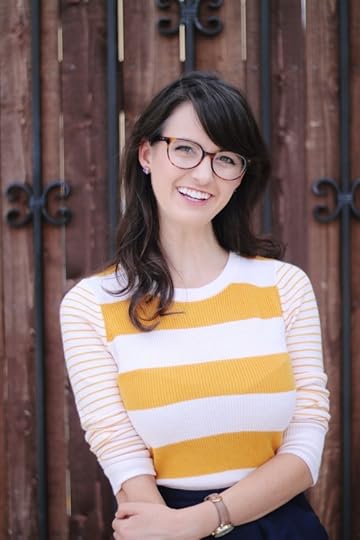
Thank you, Taylor. That was so much fun! If you are a reader, pick up Taylor’s book. If you are an author and want to be interviewed here, send me a message and we’ll connect.
The post Interview with Taylor Simonds appeared first on Heather Kindt.

